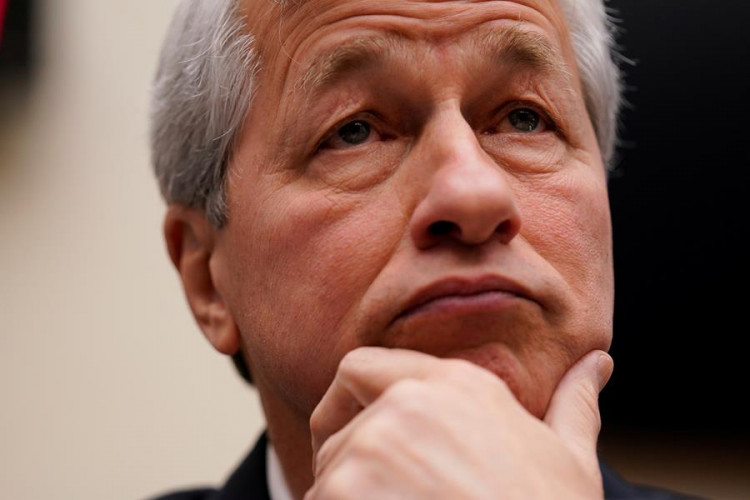No one was surprised when JPMorgan CEO Jamie Dimon took the stage at an Institute for International Finance (IIF) event and once again referred to cryptocurrency tokens as "decentralized Ponzis" despite also praising some elements of blockchain technology.
Dimon acknowledged that blockchain does, at least, have some "real" components while mentioning JPMorgan's Onyx platform for wholesale payments. JPMorgan is "a big user of blockchain." he continued.
Dimon has long been open about his dislike of cryptocurrencies, and he recently branded tokens "decentralized Ponzis." once more in congressional testimony.
"The notion that it's good for anybody is unbelievable," Dimon said.
Dimon also discussed stablecoins, which are cryptocurrencies that are linked to the value of fiat currencies. They are usually backed by cash or tangible assets. Algorithms may influence their value in some instances.
TerraUSD (UST), the most renowned example of an algorithmic stablecoin, crumbled in May, wiping out $83 billion from decentralized finance and reducing Terra's ecosystem to zero.
Dimon claimed that a "properly regulated" stablecoin would not be a concern, and he sees value in DeFi, blockchain, and "tokens that do something."
The head of JPMorgan has a lengthy history of conveying conflicting impressions about cryptocurrencies. He was an early opponent of cryptocurrencies, telling CNBC in 2014 that Bitcoin was "a terrible store of value" and that it "can be replicated over and over."
Dimon has labeled the main cryptocurrency a "fraud" and "fool's gold" throughout the years, but JPMorgan debuted its own U.S.-dollar pegged stablecoin, JPM Coin, in 2019. Clients of the bank's wealth management division can also invest in Bitcoin, Ethereum, Bitcoin Cash, and Ethereum Classic, as well as certain associated products from Grayscale and Osprey.
Last year, Dimon told guests at the Institute of International Finance's annual gathering that he "personally think[s] Bitcoin is worthless."
However, in an earlier letter to shareholders, he stated that "Decentralized finance and blockchain are real, new technologies that can be deployed in both public and private fashion, permissioned or not."
JPMorgan and Visa are planning to integrate their own private blockchain payment gateways. One of the first blockchain-based platforms in the world for wholesale payment transactions, Liink, is owned by JPMorgan. Liink performs flawlessly in resolving delayed cross-border transaction activities that are frequently brought on by a lack of reliable data. Financial institutions can conduct transactional activities quickly and securely thanks to the platform.
JPMorgan is "at the forefront" of these developments, according to Dimon's letter.





